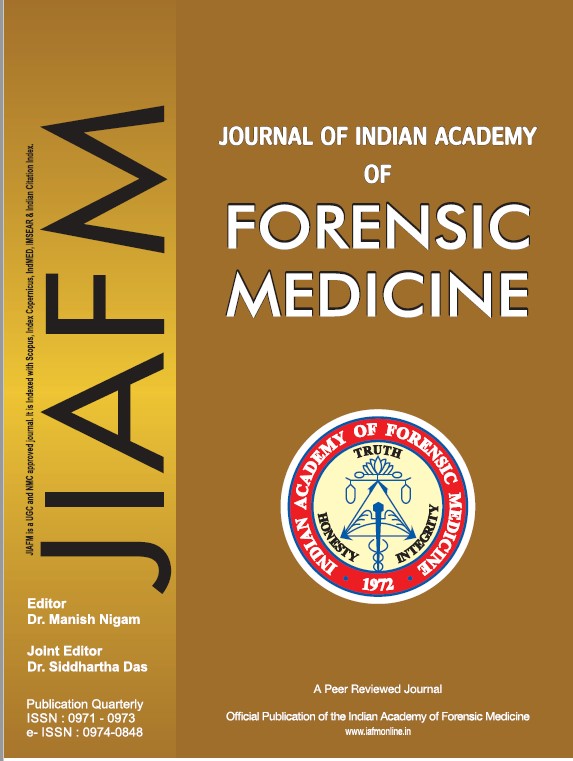Embryonic Stem Cell Research Ethical and Legal Controversies
DOI:
https://doi.org/10.48165/Keywords:
Stem cells, embryonic stem cell research, Moral and legal status of embryo, ART, Global regulationAbstract
The discovery of stem cells particularly embryonic stem cells with its possible clinical application has generated great curiosity amongst medical professionals and general public. Embryonic stem cell research has become a challenging issue for biomedical scientists, policy makers and regulatory bodies.
The key controversial issue is the determination of moral and legal status of the embryo as embryo stem cell research involves retrieving embryonic tissue from spare embryos leading to their destruction. This embryo that has the full capacity to develop into a human being is sacrificed for the benefit of others. Global regulations monitoring stem cell research are also troubled with similar ethical and moral issues associated with it. The main source of embryonic tissue is the spare or supernumerary embryos created during infertility treatment by artificial reproductive techniques (ART). Sadly, in absence of regulatory provisions to govern them, the field of ART is open for all forms of medical malpraxis bearing direct implications on embryonic stem cell research. This article is an attempt to seek clarity on the concept of embryonic stem cell research and contentious issues associated with it.
Downloads
References
David G Zacharias, Timothy J Nelson, Paul S. Mueller and C. Christopher Hook. The Science and Ethics of induced Pluripotency: What Will Become of Embryonic Stem Cells? Mayo Cli Proc, July 2011: 86(7): 634-640.
Definition of stem cells. Available from: www.medterms.com/script/main/art.asp?article key= 10597. (Assessed on 02 December 2013).
K. Takahashi and S. Yamanaka. “Induction of Pluripotent Stem Cells from Mouse Embryonic and Adult Fibroblast Cultures by Defined Factors,” Cell 126, no. 4 (2006): 663-676.
S. Yamanaka. “Elite and Stochastic Models for Induced Pluripotent Stem Cell Generation,” Nature 460 (7251), 2009: 49- 52.
Wilmut I, Schnieke AE, McWhir J, Kind AJ, Campbell KH. Viable offspring derived from fetal and adult mammalian cells. Nature. 1997; 385(6619): 810- 813.
Yamanaka S, Blau HM. Nuclear reprogramming to a pluripotent state by three approaches. Nature. 465(7299): 2010; 704- 712. 7. Lori P Knowles. The Use of Human Embryos in Stem Cell
Research, Stem Cell Network: Available from: www.stemcellnetwork.ca/uploads/file/whitepapers/The Use-of Human Embryos.pdf. (Assessed on 04 December 2013).
Weise E. “Studies show new ways to get stem cells”, USA Today, 2005 OCT 16. (Internet). Available from http//www.usatoday.com. (Assessed on 28 December 2013).
Doerflinger, R. The ethics of funding embryonic stem cell research: a Catholic viewpoint. Kennedy Inst Ethic J 1999; 9(2):137-150. 10. House of Lords Select Committee on Science and Technology.
Stem cell research 2002. Availablefrom:http://www.publications.parliament.uk/pa/ld200102/ld select/ldstem/83/8301.htm. (Assessed on 07 December 2013).
Rickard M. Current issues brief No. 5, 2002-03: Key ethical issues in embryonic stem cell research. Department of the Parliamentary Library, Australia, 2002. Available from: http://www.aph.gov.au/library/pubs/CIB/2002-03/03cib05.pdf.
(Assessed on 07 Dec 2013).
Campbell AV. Ethical issues in therapeutic cloning. Round table “Ethical aspects of human stem cells research and uses”, Brussels, 26 June 2000. Available from: http://europa.eu.int/comm/european_group_
ethics/docs/dp15rev.pdf. (Assessed on 07 December 2013). 13. Corrigan O, Liddell K, McMillan J, Stewart A and Wallace S. Ethical legal and social issues in stem cell research and therapy. A briefing paper from Cambridge Genetics Knowledge Park, 2nd Edition, March 2006.
Mulkay, M. The Embryo Research Debate: Science and the Politics of Reproduction Cambridge: Cambridge University Press. 1997. 15. Parry, S. The politics of cloning: mapping the rhetorical convergence of embryos and stem cells in parliamentary debates. New Genet Soc 2003; 22(2):145-168.
Fishbach GD, Fischbach RL. Stem cells: science, policy and ethics. J Clin Invest 2004; 114:1364-1370.
Walters L. Human embryonic stem cell research: an intercultural perspective. Kennedy Institute Ethics J 2004; 14:3-38.
Hinman LM. The Ethics of Stem Cell Research: In: Lectures in Applied Ethics. Available from: http://ethics.sandiego.edu/presentations/Applied Ethics/Stem Cell Ethics/pdf. (Assessed on 30 December 2013).
United Nations Educational, Scientific and Cultural Organization. (2004). Human cloning: Ethical Issues. France: UNESCO, SHS, 2004. Available from: http://unesdoc.unesco.org/images/0013/001359/135928e.pdf.
(Assessed on 28 December 2013).
United Nations Universal Declaration on Human Rights, UN GAOR, Art 1, G.A. Res 217, UN Doc. A/810, 1948. Available from: http://www.ohchr.org/EN/UDHR/Documents/UDHR_Translations/en g.pdf. (Assessed on 28 December 2013).
Rhonda Copelan, Christina Zampas, Elizabeth Bruise, Jacqueline DeVore. Human Rights Begin at Birth: International Law and the Claim of Fetal Rights. Reproductive Health Matters 2005; 13 (26): 120-129.
Niels Petersen. The Legal Status of the Human Embryo in vitro: General Human Rights Instruments ZaöRV 65 (2005), 447-46. 23. John A Robertson. Embryo Stem Cell Research: Ten Years of Controversy. Journal of Law Medicine and Ethics 2010: 191-203.
American Convention on Human Rights. Available from: www.oas.org/dil/access_to_information_American
Convention_on_Human_Rights. (Assessed on 04 January 2014). 25. Who’s Right to Life? Women’s Rights and Prenatal Protections under Human Rights and Comparative Law. Available from: http://reproductiverights.org/en/document/whose-right-to-life womens-rights-and-prenatal-protections-under-human-rights-and comparative . (Assessed on 06 January 2014).
European Convention on Human Rights (Internet). Available from: http://www.echr.coe.int/Documents/ConventionENG.pdf. (Assessed on 04 January 2014).
The Code of Criminal Procedure, 1973 and The Indian Penal Code, 1860 In: Criminal Manual. Universal Law Publishing Company Pvt Ltd. 2006.
Waldby, C. Stem cells, tissue cultures and the production of biovalue. Health 2002; 6(3): 305-323.
Thompson, C. Umbilical cords: turning garbage into clinical gold. Science 1995; 270 (5243): 1744-1745.
Alka Sharma. Stem Cell Research in India: Emerging Scenario and Policy Concerns: Asian Biotechnology and Development Review, 2006; Vol 8, No 3, 43-53.
A Report of the Witherspoon Council on Ethics and the Integrity of Science. In. The Stem Cell Debates: Lessons for Science and Politics. Appendix E – Overview of International Human Embryonic Stem Cell Laws. (Internet). Available from: www.thenewatlantis.com/doc.Lib/20120125_TNA34Appendix E.pdf. (Assessed on 06 January 2014).


